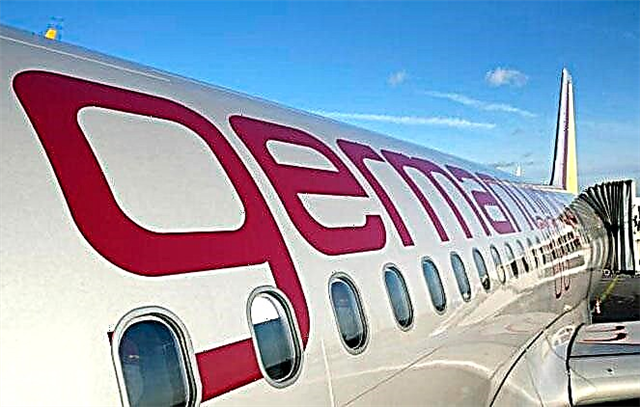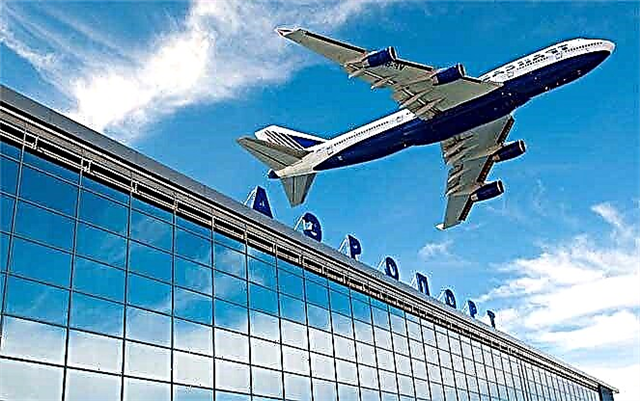Working abroad can be a real chance to save money, see the world, get acquainted with the customs and way of life of people from other countries. Those who made such a decision immediately have many questions, which primarily relate to visa processing and the provision of the necessary documents. One of these documents, which an applicant will definitely need for legal employment abroad, is an invitation from the company in which he will work. Let's try to figure out what kind of document it is and what a sample job invitation from an employer looks like.

The specifics of employment abroad
How well it will turn out to be employed abroad depends on a number of factors: education, knowledge of the language, qualifications, and the presence of connections. Of course, it will be easier for a specialist who has confirmed his diploma and speaks the language of his host country, or at least English, to find a prestigious and highly paid job in any country in Europe. However, even without this, many of our compatriots often manage to find an option that is incomparably more profitable than in their homeland.
Important points to pay attention to for those who decide to go to work abroad are:
- employer reputation;
- early conclusion of an employment contract;
- working conditions;
- the attitude of the country's population towards migrants;
- suitable salary.
Job offer - an invitation from a foreign employer
After a suitable vacancy has been found abroad, an interview has been successfully passed and an oral consent has been received from the employer to accept the applicant for a job, the applicant has the right to apply for a job invitation (or Job offer). Job offer looks like an official appeal to the future employee, printed on the letterhead and certified by the employer.
The invitation contains the following text:
- Full name of the applicant;
- the title of the proposed position;
- the future immediate supervisor is indicated;
- the job responsibilities of the future employee are prescribed;
- address of the future place of work;
- the amount of wages;
- features of the probationary period (if any);
- schedule;
- benefits or compensation;
- the duration of the invitation.
Below is an example of a Job offer:

A job offer is a kind of guarantee that the recruitment will take place on strictly defined conditions. However, the invitation has no legal force. Therefore, in order to obtain a work visa abroad, in addition to the offer, you will also need an employment contract concluded and signed by both parties.
Obtaining an invitation to work in different countries
Employment in different countries of the world has its own nuances, but its first stages are similar:
- find an employer - this can be done online or by visiting the country in person, for example, on a tourist visa;
- pass an interview;
- receive a letter from the employer with an invitation;
- sign an employment contract.
Employers from the EU countries, before hiring a candidate who is not an EU citizen, must go through a number of procedures:
- register a vacant position with the Ministry of Labor;
- publish information about the vacancy;
- consider applicants for the position from among compatriots.
Only in the event that fellow citizens do not suit the employer as workers, he can obtain permission to accept for the position of a foreigner who is not an EU citizen, and issue a written invitation to the applicant.
Similar difficulties with the employment of citizens of the CIS countries are relevant both in the EU countries and in the USA, Canada, Australia, New Zealand or Great Britain. Therefore, the employer must be very interested in hiring a migrant from Russia, Ukraine or Belarus.
At the same time, some countries, such as the Czech Republic, welcome foreign specialists as their labor force. On the website of the Ministry of Labor and Social Policy of the Czech Republic, a special database has been created from employers willing to hire foreigners.
It should be noted that an invitation from the receiving party will also be required if the employee arrives from a third country by way of transfer within the same holding.

Features of obtaining an invitation to work in different countries
The complexity of paperwork, in particular, an invitation from an employer, will depend on the country in which the applicant from Russia found a job.
Poland
A Polish work invitation or sanctioned (in full "Statement of intent to entrust a job to a foreigner") is necessary to obtain a work visa for a foreigner, valid for six months. Such an invitation is suitable for Belarusians, Russians, Ukrainians, Moldovans and is used most often to fill the shortage of seasonal labor in the country.
A Polish national visa for a period of one year can be opened if the employer issues a voivodship invitation.
Such a document is received, as a rule, by those foreigners who have already worked and lived in the country for a certain time. Unlike the usual Job offer, the invitation of the governor has a territorial link, a specific place of registration.
It is necessary to distinguish visa approval ("Work permit for a foreigner") from the sanctioning and invitation of the voivode.
Israel
An Israeli employer must also prove that no one, except a foreign specialist, will be able to do the work he needs. At the same time, the company must have a license to employ a foreigner, and in addition, undertake the obligation to pay him a salary 2 times higher than what a local worker would receive.
Such requirements are aimed at preserving jobs for Israelis and attracting only the truly necessary foreign specialists.
Finland
For seasonal work in some countries, for example, in Finland, the employer just needs to send the applicant an invitation in the form of an email message. This applies to employment for up to 3 months.
To apply for a long-term work visa (from six months), the original job offer is sent by mail. On the basis of this document, the Finnish consulate issues a visa for the applicant to work.
Prices and terms of issuance of invitations to work in different countries
The cost and timing of issuing an invitation to work in different countries differ. So, in Poland, since January 2021, new requirements have been introduced for issuing invitations from employers for foreigners:
- Now it is not 1 page, but 2 completely filled sheets.
- The processing time has increased from 2-3 to 7-30 days.
- An invitation, for which previously you did not need to pay a penny, became paid for the employer - 30 zlotys.
- The procedure for issuing an invitation for an employer has become more complicated - now you need to fill out additional forms, provide a photocopy of your passport.
Due to the more complicated requirements, the purchase of an invitation from a direct employer will cost the applicant 150-200 zlotys, with intermediaries the price will be even higher. The rules for issuing invitations from the governor remained unchanged.
In order to hire a qualified specialist to work in Canada, the employer will first of all have to answer why there was no Canadian citizen for the vacant position.
Then the employer submits an application to the Ministry of Labor with a request to employ a foreigner. The time for its consideration is one month, the cost is 1000 Canadian dollars (about 600 euros) for each applicant.
At the same time, even the presence of an invitation from an employer from Canada today does not guarantee obtaining a work permit for a foreigner. The reason for this is the simplification of the immigration system, focusing on young applicants without much work experience, especially graduates of Canadian universities.
A work invitation to Germany or other EU countries also requires some trouble from the employer: write and submit a request for a work permit to a foreigner, provide evidence that none of the local residents is able to perform this type of work, prepare an invitation to work. The processing time for all necessary permits can range from several months to six months.
In addition, applicants from the CIS countries wishing to find a job abroad should take into account quotas, that is, the number of vacant places in the country for performing a certain type of work. For example, in America, no more than 66 thousand foreigners can be accepted annually for seasonal work (type of visa H-2B).
Employer company verification
The job seeker can verify the authenticity of the employing company that sent him the job offer. To do this, you need to find the tax identification number of the company in the letter and enter it into the appropriate services on the Internet.
If the company really exists, the search engine will give all the information about it. Therefore, the employer is real and can be trusted.
On the Polish invitation, you need to look for the NIP or REGON number. The check is carried out on the website of the State Court Register or on the portal of the Unified State Register of Legal Entities and Entities Performing Economic Activities.

Documents for obtaining a work visa
To open a work visa, the applicant will need the following documents:
- an invitation from the employer;
- work permit from a foreign ministry;
- civil passport indicating the place of registration;
- a foreign passport, which will be valid for at least six months after returning from a trip;
- medical insurance;
- certificate from the place of previous work on letterhead indicating the position, length of service, salary for the last six months;
- a document on the absence of a criminal record;
- Photo;
- receipt of payment of state duty.
In addition, the applicant must complete a visa application form. The list of documents is subject to change, so it is better to check the information with the consulate of the host country in Russia.
Outcomes
Employment for citizens of the Russian Federation, Ukraine, Belarus and other CIS countries in Europe or America has its own specifics. To apply for a work visa, in addition to personal documents, the applicant must be invited by the employer, confirming the seriousness of the intentions of the host country and guaranteeing the availability of a suitable vacancy for the applicant abroad.
In most countries, they are very strict with non-EU migrants, so employers have to go through a number of difficult procedures in order to legally hire a foreigner to work in the organization.











